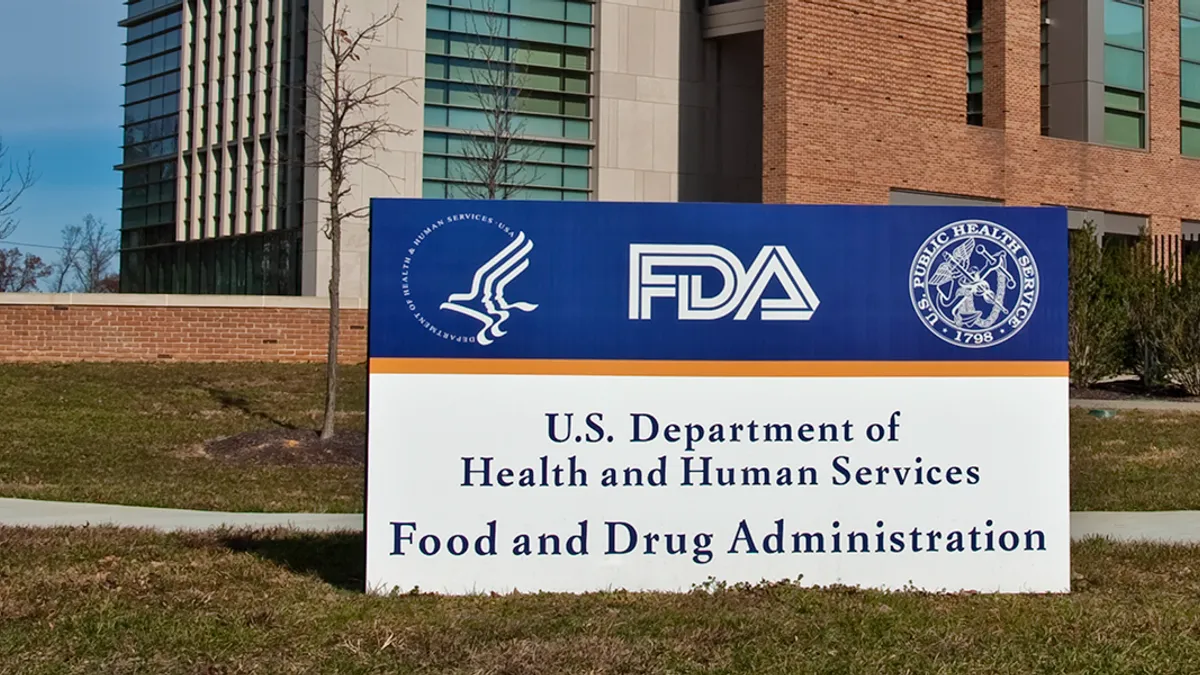UPDATE: April 6, 2020: In an updated letter to industry April 4, FDA's Center for Devices and Radiological Health extended certain coronavirus-era policies it first outlined in a March 23 letter.
In-person meetings with industry will all be converted to teleconferences through May 31. FDA had said in its letter less than two weeks prior that the teleconference policy would extend through April 30.
Likewise, CDRH is further lengthening automatic extensions to certain marketing application responses by 90 days. The policy applies to marketing applications on hold as of March 16 where the response due date is on or before June 30. The agency's previous letter outlined a 60-day extension for response due dates on or before April 30.
In a separate document April 4, the agency also offered advice on keeping medical device manufacturing workers safe from exposure to SARS-CoV-2 during the COVID-19 outbreak.
The agency's recommendations include trying to restrict the number of manufacturing personnel in clean areas, avoiding face-to-face work area designs, setting up procedures for quick identification and isolation of sick individuals, and implementing controls like use of high-efficiency air filters, increased ventilation rates and use of physical barriers.
Dive Brief:
- FDA's Center for Devices and Radiological Health published a letter to industry Monday outlining a host of changes to standard operations with medical device establishments as the agency manages response efforts to the COVID-19 pandemic.
- Those changes include shifting all in-person meetings with industry through April 30 to teleconferences, and extending response due dates by 60 days for certain 510(k)s, PMA or HDE applications, and De Novo requests.
- The aim is to ensure "that government and private sector efforts to respond to this national emergency receive the highest priority," William Maisel, director of the Office of Product Evaluation and Quality in CDRH, wrote in the letter.
Dive Insight:
CDRH has been addressing the spread of COVID-19 since January, when the disease was still believed to be somewhat contained to China. Early efforts included outlining the emergency use authorization pathway for diagnostic test developers and offering updates on potential device shortages stemming from manufacturing disruptions.
In light of the public health emergency, the agency has released a number of guidance documents targeted at medtech companies involved in coronavirus response, addressing new authorizations for ventilators, remote patient monitoring devices, and diagnostic tests, and on conducting postmarket adverse event reporting and clinical trials during the crisis.
Monday's letter addressed a number of operational changes affecting regulators and device makers, regardless of whether a company is directly involved in coronavirus response. Among them, CDRH is extending the response due date for marketing applications on hold as of March 16 for which responses were due on or before April 30.
The automatic 60-day extension applies to 510(k)s, premarket approval and humanitarian device exemption applications, as well as De Novo requests.
"For additional submission types where a response or report is due (e.g., Post Approval or 522 Study reports, Investigational Device Exemption annual reports, PMA reports), we encourage you to submit the response or report when possible," CDRH added.
While CDRH has only said its teleconferencing policy applies through April 30 at this point, it will provide periodic updates on whether meetings after that date will also need to be altered. The teleconferencing idea may be applied to public meetings disrupted by COVID-19; for example, the agency said it's "exploring" whether a MDUFA V meeting originally scheduled for April 7 can be conducted via webcast only.
In a separate update late Monday, FDA said the number of test developers it's worked with now exceeds 160 — double the amount referenced by Commissioner Stephen Hahn 11 days ago. The agency has reportedly communicated with 65 laboratories planning to take advantage of the new lab-developed test policy.











